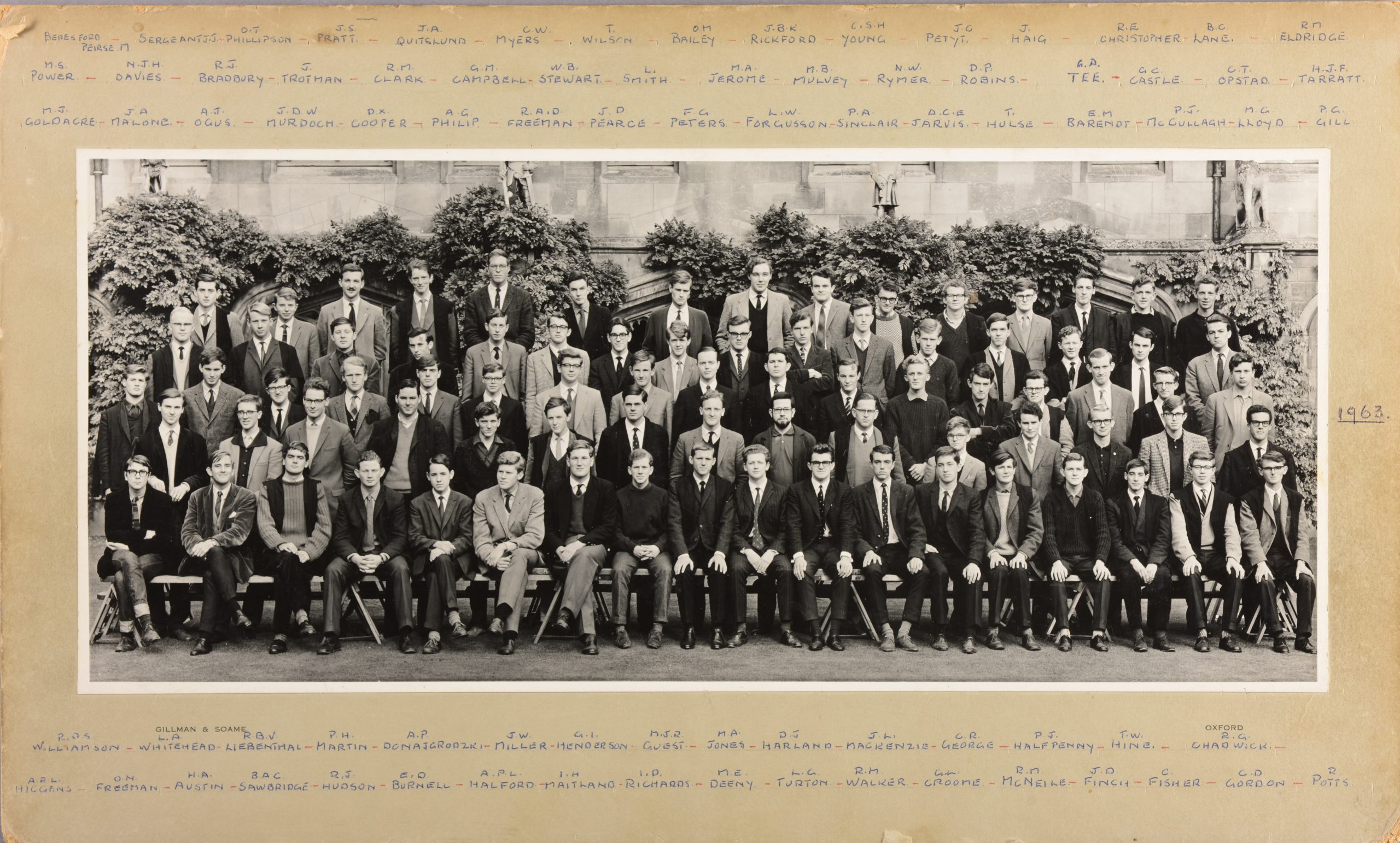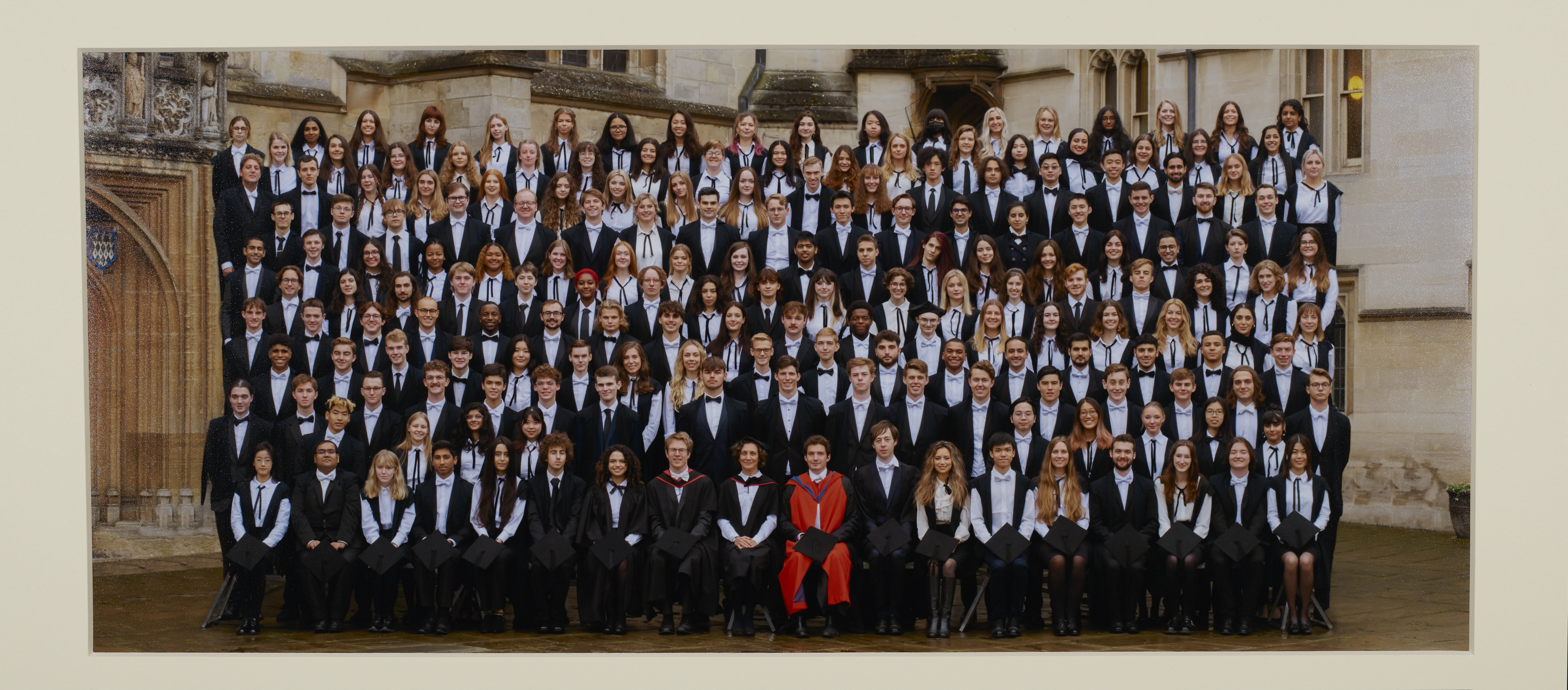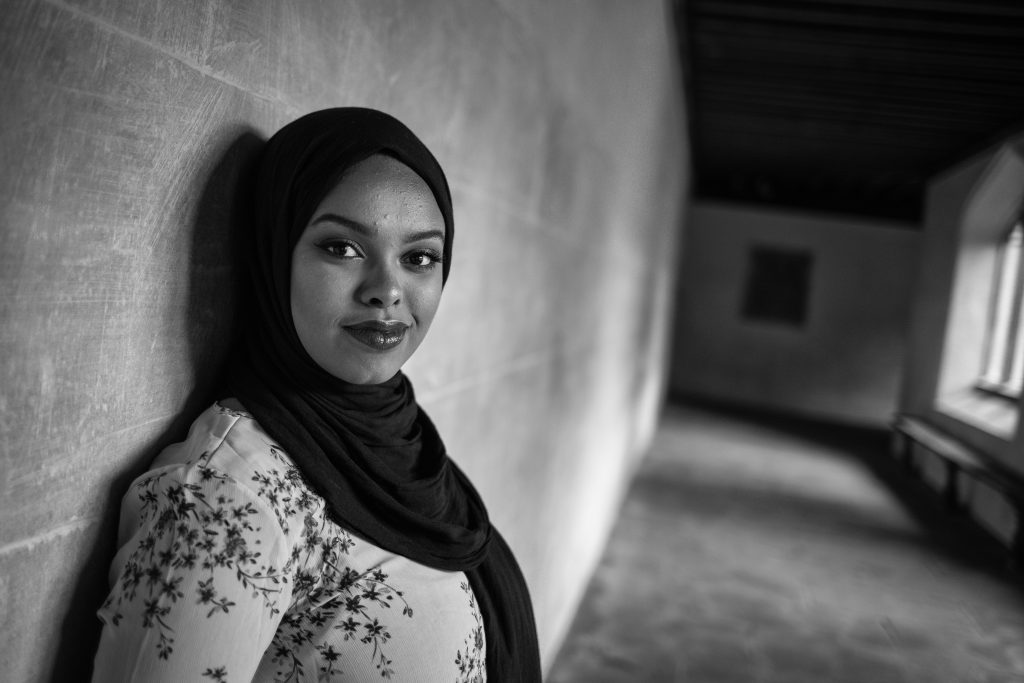
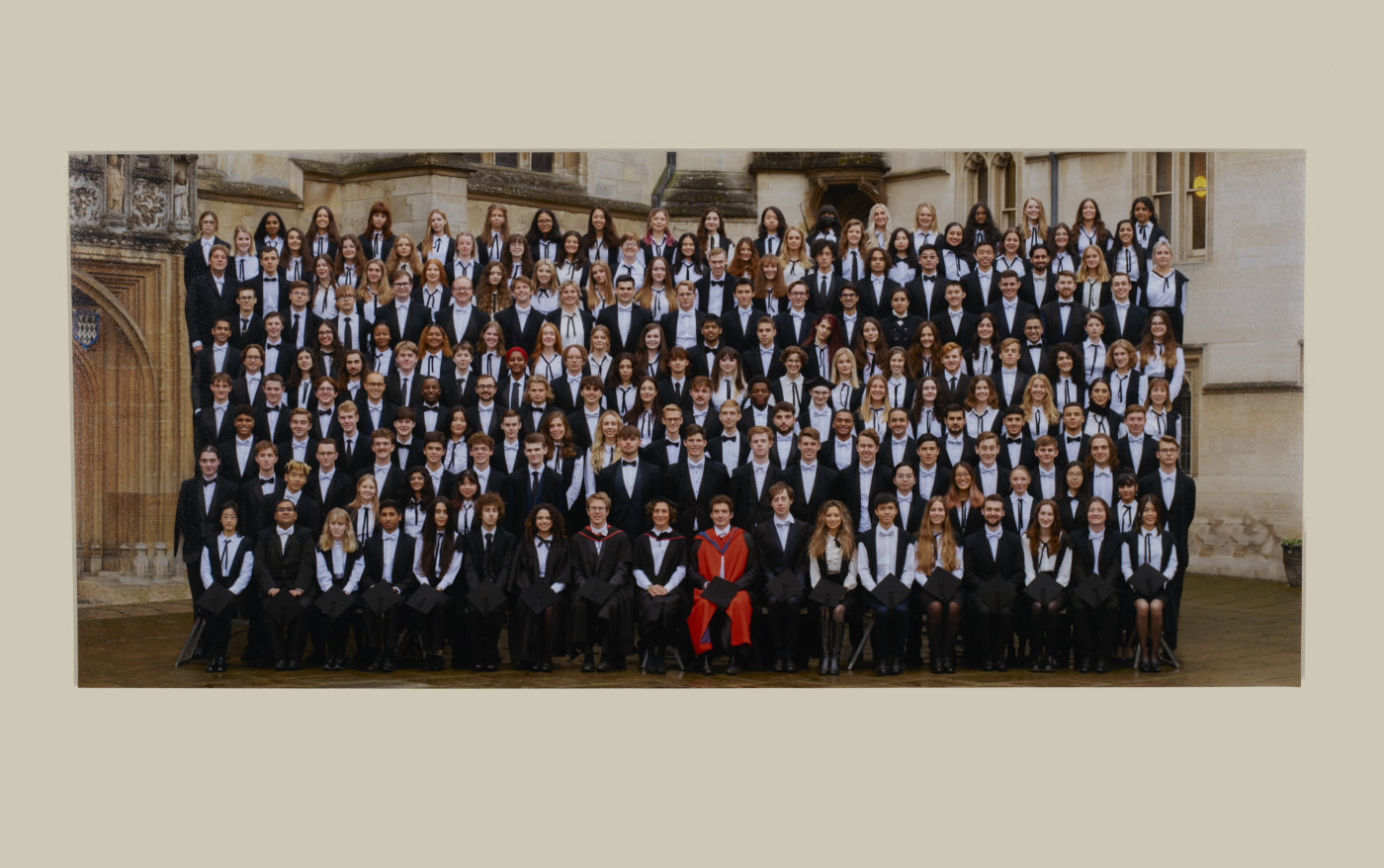

The heritage of undergraduate students within Magdalen has altered significantly in the last ten years. In 2015, 13 per cent of UK undergraduates beginning their studies at Magdalen identified as being of Black and Minority Ethnicity; by 2021 this had increased to 18 per cent. This demographic change has coincided with a period of increased investment in outreach and access initiatives, as well as of contextualised data to enable fairer admissions decisions.
Substantial efforts to create an inclusive and welcoming community have also had an impact across the college. In many of these initiatives, student activism has led the way in identifying and challenging racial inequalities.
Indeed, the five student internships that made this exhibition possible were a direct result of collective student action from within college. In response to Black Lives Matter in summer 2020, Magdalen’s undergraduate and graduate students submitted a paper on ‘Tackling Racial Inequality in Magdalen’. Two of the paper’s proposals were to ‘create and promote an exhibition on the untaught history of Britain and wider race-related issues’ and to acknowledge ‘the role of colonialism in the College’s history’.
There is much that we still do not know about people’s experiences at Magdalen. We hope that this exhibition is a first step towards uncovering, sharing, and reflecting on some of these previously marginalised histories.
Princess Ashilokun, ‘Ignorance Must Fall’, in Rhodes must fall: the struggle to decolonise the racist heart of empire, eds Rhodes Must Fall Movement Oxford, Brian Kwoba, Rose Chantiluke, and Athinangamso Nkopo (London: Zed, 2018)
Princess Ashilokun came to Magdalen to study English in 2015. As well as playing rugby for the University, she was a performance poet and an organising member of the Rhodes Must Fall Campaign. The Rhodes Must Fall global movement began at the University of Cape Town in 2015, seeking to ‘decolonise’ education.
Princess Ashilokun’s spoken word poem ‘Ignorance Must Fall’ was published in 2018. Her poem included the verses:
Oh it’s easy to acknowledge Oxford is steeped in tradition,
But when you’re in it
Not so much to accept that it’s a one-sided rendition.
A narrative told from a magnifying glass ceiling.
Hear the quick call to decolonise our education.
See the fighting white tears to keep our miseducation.
…
If there are two sides to every coin
Well then here’s a little heads up
Cause we’re flipping the tale and
Flipping the switch
Onto the side of a truth unspoken.
You can hear Princess Ashilokun perform her poem here.
Magdalen College Library


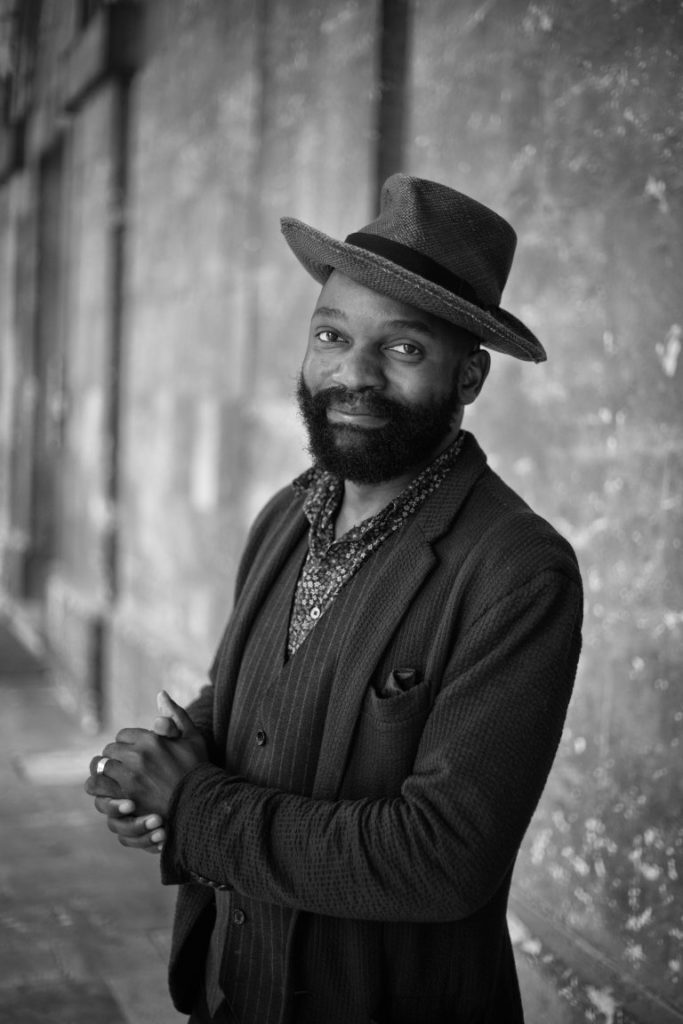
Photographic portraits of Samson Kambalu and Yethrib Mohammed by Jeremy Sutton-Hibbert, 2018
These portraits hang in Magdalen’s dining room, known as Hall, alongside historic oil paintings. Calla Randall, Magdalen’s JCR President, was elected in 2018 on a mandate to expand the representation of College’s community in its most formal space.
The portraits include Yethrib Mohammed, a medical student, and Samson Kambalu, fellow and associate professor of fine art. The commissioned portraits ‘celebrate the extraordinary diversity of Magdalen’s community’. The JCR received 283 nominations in 2018 and selected 25 current members of Magdalen who made ‘notable contributions to the community’.
Magdalen College Hall
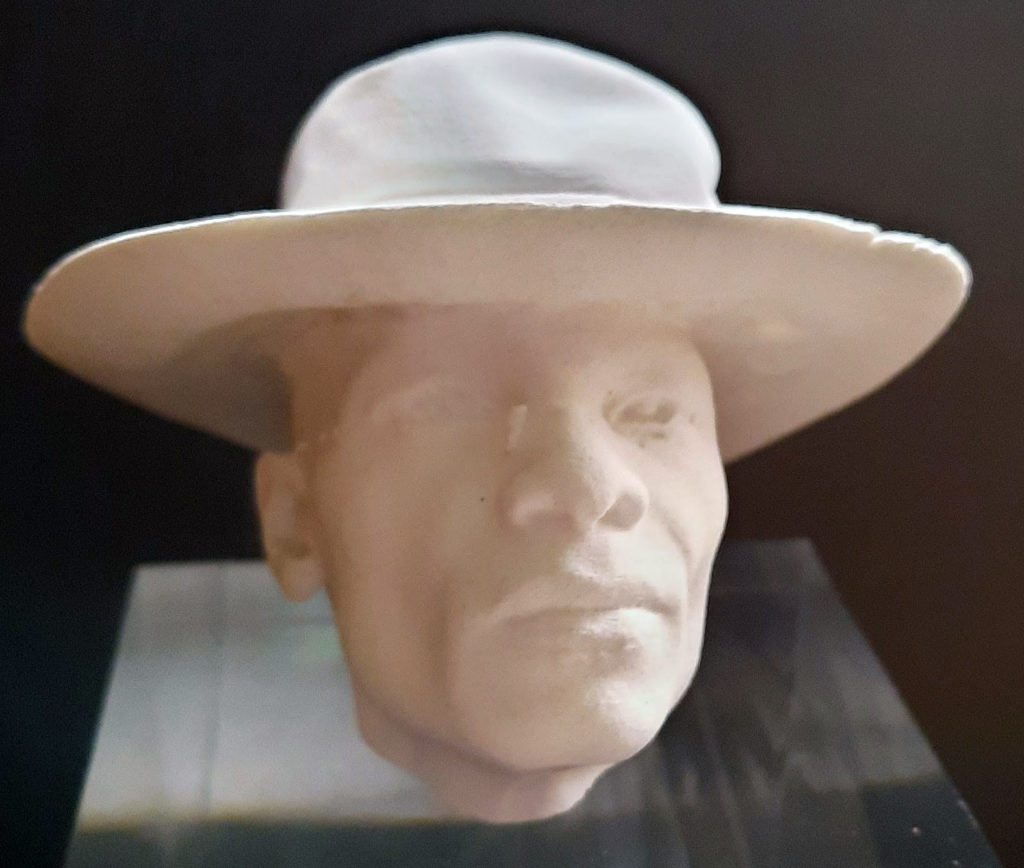

Samson Kambalu, preparatory model for ‘Antelope’
Samson Kambalu’s sculpture ‘Antelope’ has been commissioned for a place on the prestigious ‘fourth plinth’ in Trafalgar Square. This clay figure of John Chilembwe is one of his clay preparatory models for ‘Antelope’.
Kambalu came to Magdalen in 2017 as a fellow of the College and associate professor at the Ruskin School of Art. ‘Antelope’ restages a photograph of pan-Africanist and Baptist preacher John Chilembwe (1871-1915) with John Chorley, a white European missionary. Chilembwe, who was killed a year after the photograph was taken, is seen today as a father of Malawi’s resistance to British colonialism thanks to the unifying effect of his unsuccessful uprising.
Exhibited with the permission of Samson Kambalu
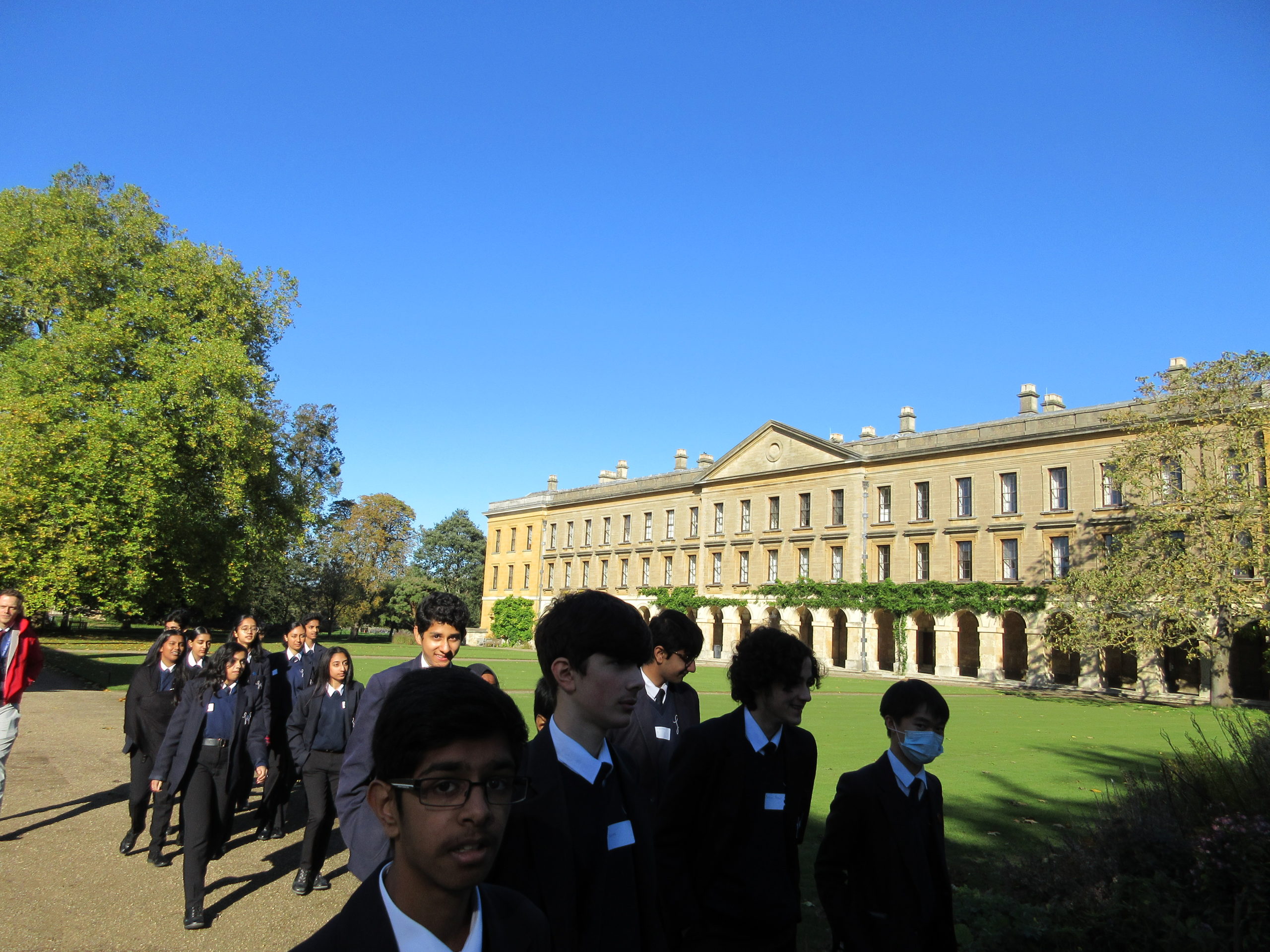
Visit by Wembley High Technology College, Brent, 2021
Since the 1970s, students and fellows have sought to encourage more students from disadvantaged and under-represented backgrounds to apply to Magdalen. The scale and impact of College’s work expanded significantly from 2012. Two outreach officers and two fellows now lead access and outreach initiatives.
Magdalen has invested in projects designed explicitly to counter racial inequalities. Since 2019, College has supported Target Oxbridge, a year-long programme for Black African and Caribbean students and students of mixed race with Black African and Caribbean heritage. Since 2020, Magdalen has co-organised a Humanities Study Day for UK Black and minority ethnic students and has hosted the student-led African and Caribbean Society’s offer-holders’ day for four years. For postgraduates, in 2022 Magdalen established a scholarship for UK Black or ethnic minority doctoral candidates in Law.
The UK maintains profound educational inequalities. Race, class, and region intersect to create injustices that affect who enjoys the outstanding opportunities that Oxford offers. Magdalen is committed to making the educational and financial investments necessary to ensure that students from disadvantaged and under-represented groups are able to apply and thrive within the College community.
Magdalen College Outreach Office
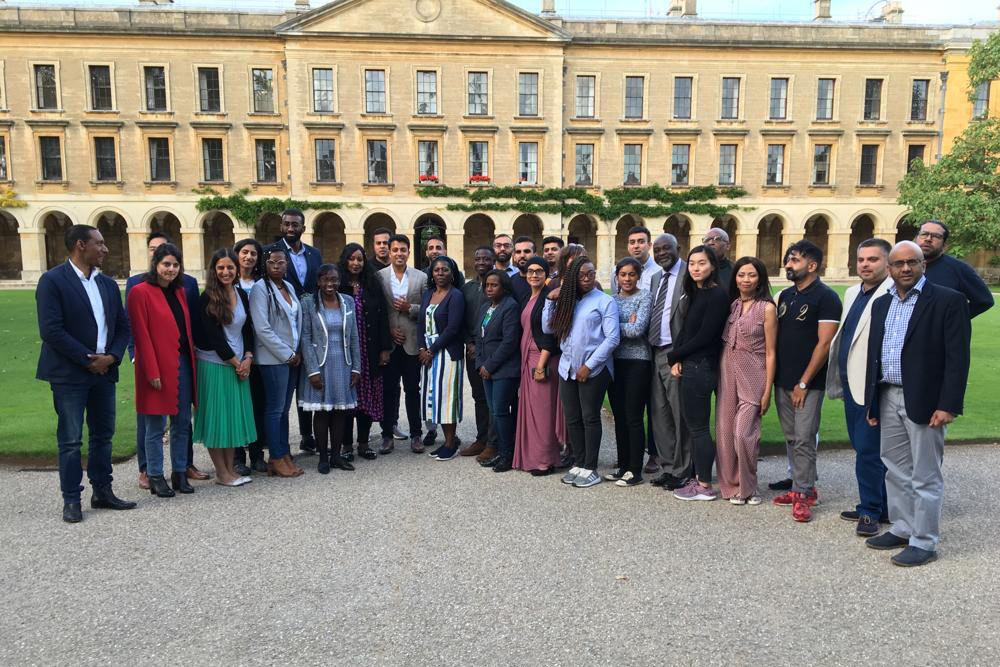
Pathway to Success participants, 2019
In 2019, Magdalen launched Pathway to Success, in partnership with Operation Black Vote, the House of Commons, and the Blavatnik School of Government. The project aims to equip talented Black, Asian, and minority ethnic participants with the tools and knowledge required to step up to senior leadership positions. Following its success with 30 participants, the programme doubled in size for 2021, receiving over 800 applications. The programme includes a one-week residential course at Magdalen and mentorship from Magdalen alumni. In 2022, Simon Woolley, Lord Woolley of Woodford, and Founding Director of Operation Black Vote was elected an Honorary Fellow of Magdalen College.
Magdalen College Development Office
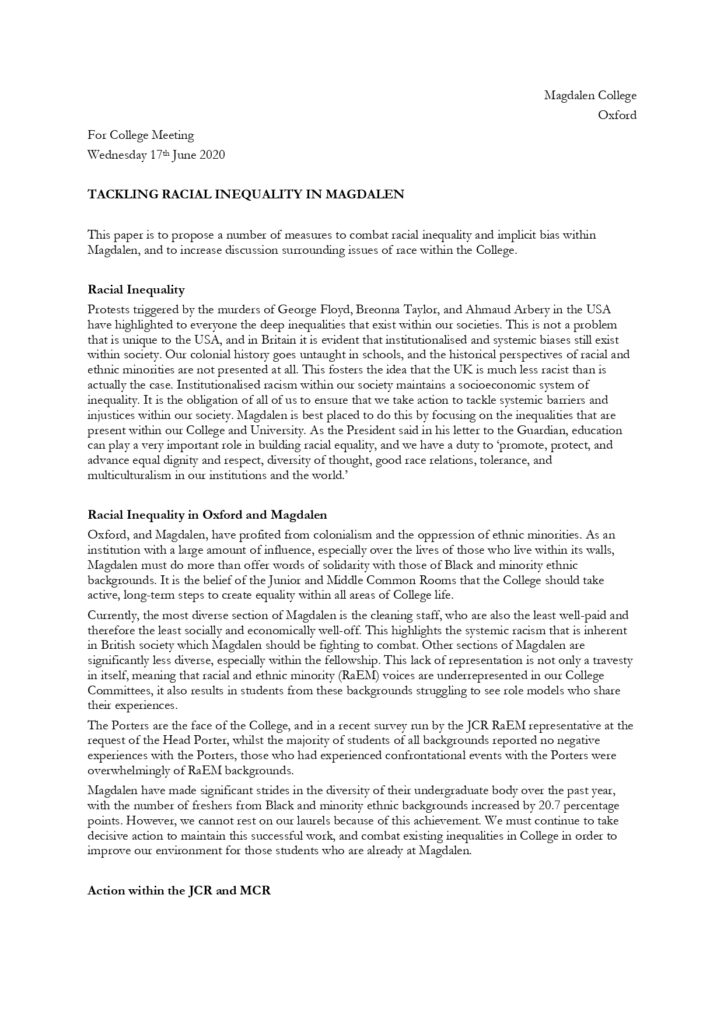

Magdalen Junior Common Room (JCR) and Middle Common Room (MCR), ‘Tackling Racial Inequality in Magdalen’, page 1, June 2020
In response to the Black Lives Matter movement in 2020, students at Magdalen wrote a paper proposing a series of changes within the College. Magdalen’s Governing Body endorsed these proposals and has since been working to implement changes.
Since the 2010s, undergraduate and graduate students at Magdalen have elected annual Racial and Ethnic Minorities (RaEM) representatives. Tarini Misra, a representative on the 2021 JCR committee, commented that Magdalen does not have the ‘complacency that sometimes other colleges can show’, which ‘means student initiatives actually get places’. Students have played a leading role in ensuring that Magdalen acknowledges racial inequalities and forms a welcoming community for all.
Magdalen College Junior Common Room Committee
You can find out more about the recent experiences of students of colour at Magdalen below.
Interview with Kelly Hazejager, Magdalen College, 2021
Interview with Tarina Misra, Magdalen College, 2021
On arriving at Magdalen:
On her experiences as a Racial and Ethnic Minorities (RaEM) representative:
MCA: Acc2022/25
Seeing people like yourself in College, in important Committee positions, and that are actively involved and interested in your wellbeing is as necessary as it is comforting. The community we are creating and the things we have managed are things that I would have loved to have seen when I first got here.
Ti Balanta, written testimony, JCR Racial and Ethnic Minorities representative, 2021
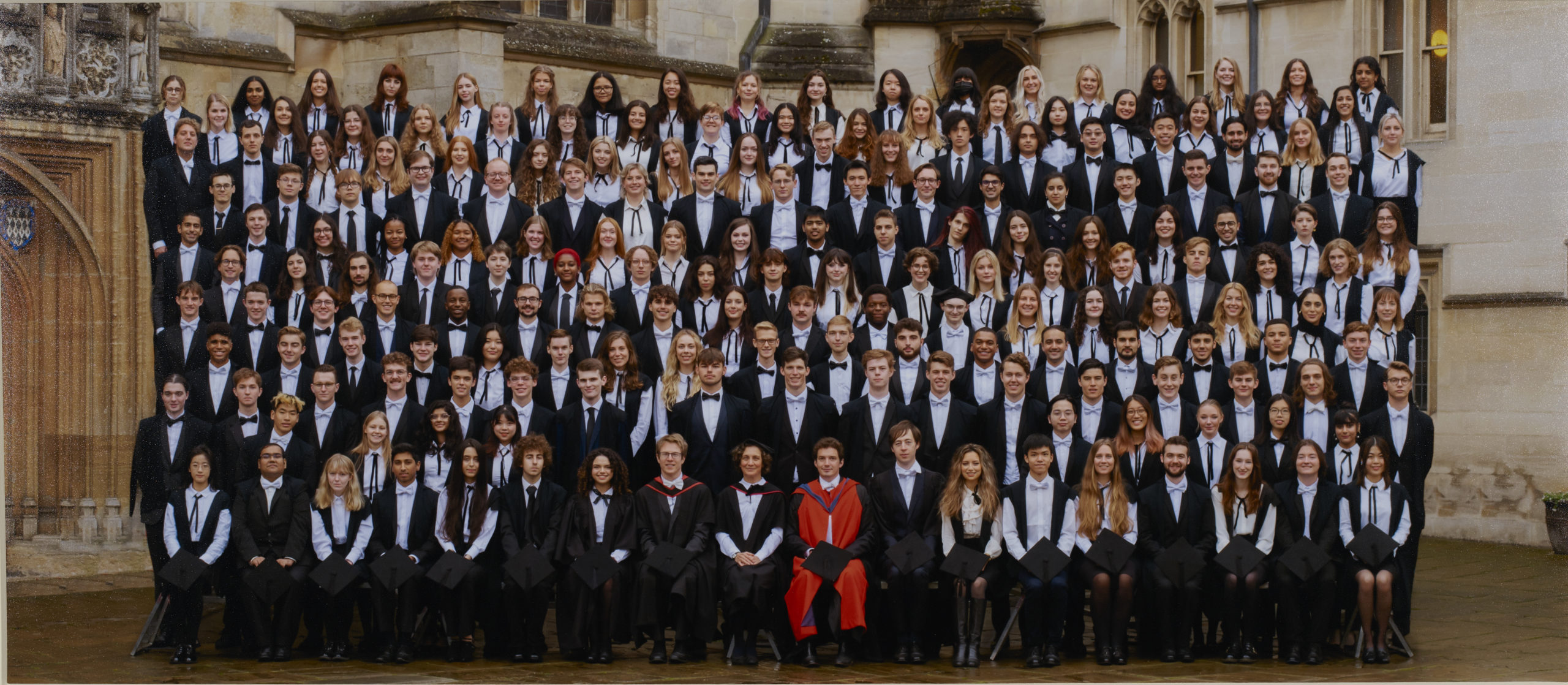
Matriculation photograph, 2021
This photograph was taken in October 2021 of the latest intake of Magdalen undergraduate and graduate students. The visual contrast with the matriculation photograph from 1963, shown below, reveals some of the changes within Magdalen’s student community across the last sixty years.
Magdalen College Tutorial Office
